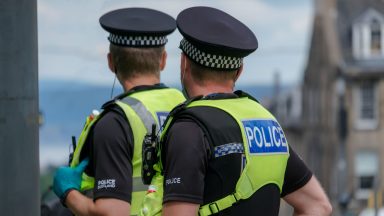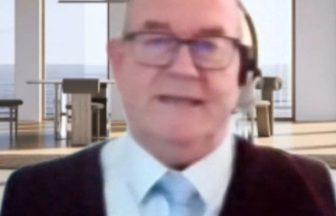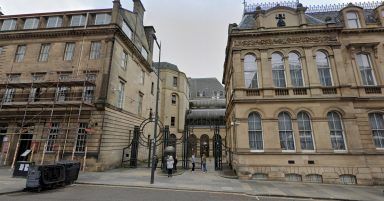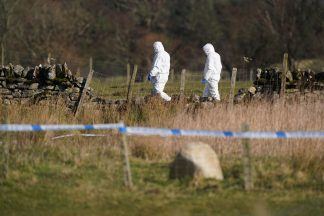Edinburgh taxi drivers have been offered the chance to be equipped and trained to use life-saving overdose-reversing medication to prevent drug deaths.
The capital’s largest operator, Central Taxis, and their drivers have all been approached to carry out the necessary training to carry the drug naloxone in their cabs.
As taxi drivers cover large areas in the region, and serve different communities on a daily basis, they are often likely to encounter an overdose before an ambulance is called.
It is hoped that drivers who carry out the necessary training and carry naloxone in their cabs will be able to recognise the signs and symptoms of overdose and administer naloxone before an ambulance arrives.
Naloxone temporarily reverses the effects of an opioid overdose, which could mean the difference between life and death while waiting on emergency services.
The initiative was launched by the Scottish Ambulance Service (SAS) as part of the Stop the Deaths campaign.
The Stop the Deaths campaign was launched by the Scottish Government and the Scottish Drugs Forum, which seeks to reduce stigma and raise public awareness of how to recognise and intervene when someone has a drug overdose.
In February this year, more than 20 Glasgow Taxi drivers signed up to carry the life-saving drug, and inspired by its success, Julie McCartney, SAS’s drug harm reduction lead for the east region, worked with Central Taxis to encourage a similar campaign in the Lothians.
She said: “Public knowledge and understanding is key as we seek to address the stigma surrounding drug use and encourage a compassionate approach to those who are vulnerable and need our help. This forms part of a wider catalogue of work by the Scottish Ambulance Service to maximise every opportunity to support those who use drugs to access treatment and support direct from the scene of an emergency.”
Murray Fleming, company secretary, at Central Taxis added: “Our drivers are out and about 24 hours a day and are very much the eyes and the ears of the city. We’ve had a terrific initial response from drivers registering to complete the training, carry naloxone and play their part in the Stop The Deaths initiative.
“We already provide a back-up service for the NHS and Ambulance service in Edinburgh and see ourselves as very much the fourth emergency service.”
As part of this initiative, SAS is also working with their partners Edinburgh Alcohol and Drug Partnership (EADP), Scottish Drugs Forum (SDF), and Scottish Families Affected by Alcohol and Drugs (SFAD).
SDF is providing free access to online naloxone training for drivers, and the naloxone kits are being provided by SFAD, who will use their click and deliver service to distribute them to the drivers who request them.
Suzanne Gallagher, SFAD’s naloxone lead, said: “We very much welcome Central Taxis in Edinburgh promoting the naloxone campaign and carrying the life saving drug.
“From the launch of the Glasgow taxi we have already seen the impact this is having on the wider public wanting to carry naloxone and requesting this via our national click and deliver service.
“Taxi drivers speak to so many people 24 hours a day and are well placed to support our vulnerable communities at a time of emergency. We would welcome anybody who is interested in carrying a kit to check out our website where they can access an elearning course on how to administer naloxone and request their own kit.”
The Scottish Government’s drugs policy minister Angela Constance said: “I welcome this joint initiative by SAS and Edinburgh taxi drivers which will result in more lives being saved through the use of the emergency treatment naloxone.
“The response to the Stop The Deaths campaign by the Scottish Drugs Forum and Scottish Government earlier this year has been very encouraging and in addition to saving lives, we hope it has helped reduce the stigmatisation of people at risk of overdose and those with a problematic drug use more broadly.
“Naloxone is one of a wide range of measures being used to address the public health emergency of drugs deaths, but it plays an important role and I hope people will continue to visit the ‘Stop The Deaths’ website to find out more.”
There were 1007 suspected drug deaths in Scotland in the first nine months of 2021, according to official statistics.
Previous figures published by the National Records of Scotland revealed 1339 drug-related deaths in 2020 – a five per cent increase on the previous year’s statistics representing the largest number since records began in 1996.
The country continues to have the worst drug death rate in Europe, with 21.2 deaths per 1000 of the population, more than three-and-a-half times higher than the rest of the UK.
Follow STV News on WhatsApp
Scan the QR code on your mobile device for all the latest news from around the country


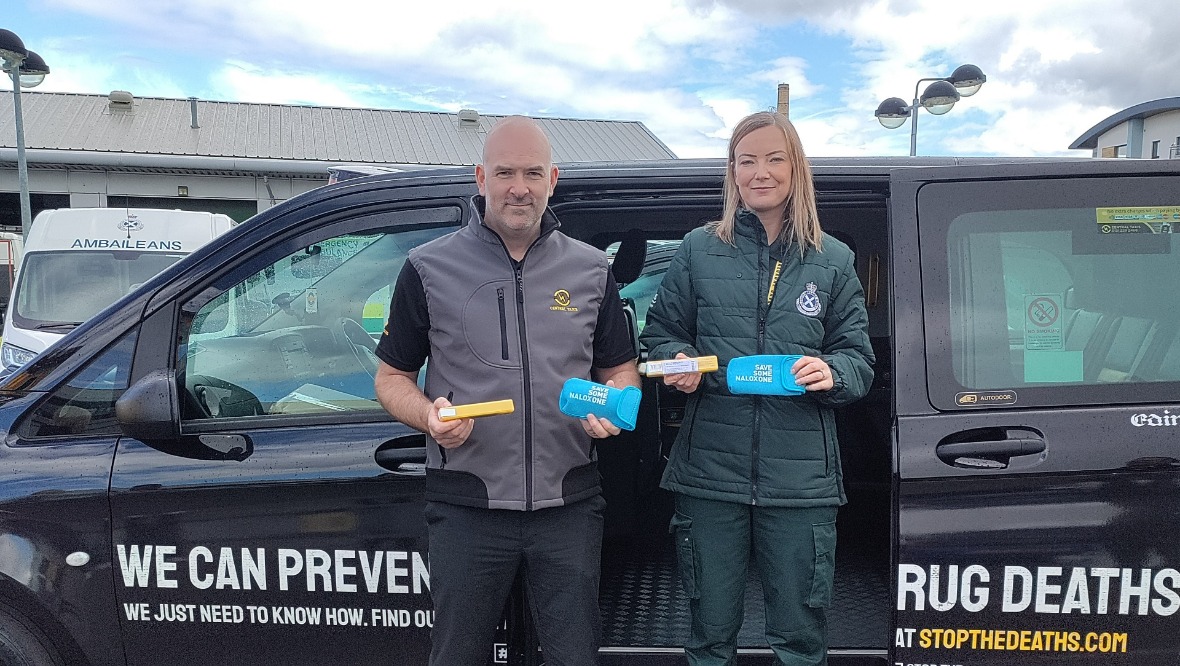 Scottish Ambulance Service
Scottish Ambulance Service















